Graham Reid | | 5 min read
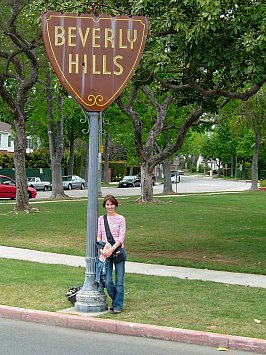
In the city of Los Angeles -- which is 19th-century Spanish for "the land where men walk on four wheels" -- it sometimes seems that only the socially disenfranchised take the bus.
That's not entirely true, of course. Every day any number of good honest folk ride the MTA -- but so, too, do veterans of the alcohol wars, strange men who mumble and pay their fare in refund money, the careworn guy in the grey suit who conducts an angry cellphone conference call-cum-argument with his ex-wife and her lawyer about access to the kids, that miniature Mexican woman with the huge suitcases ...
Oh, and the likelihood of having Sandra Bullock -- even here in movie-obsessed LA -- driving you to Watts or the beach is pretty remote. Some bulky guy with the disposition of a permanently peeved Ernest Borgnine is more likely.
"Man, why you wanna take the bus?" a Camaro-owning Angelino friend said recently. "It's like a mobile zoo."
Yes, in this the city where the car is king and the songs celebrate Ventura Highway and Sunset Boulevard, if you ain't got a car, you simply ain't got. And by some curious inversion of logic and gyroscope, people in cars look down on those travelling above them in the bus.
There's also a good argument for having a car, however. Points which look close on a map and linked by such evocative names as Golden State Freeway, Redondo Beach Freeway or Hollywood Freeway stretch out to become half-day trips when you climb the steps of the bus.
But catch a bus and you can be in for more than a ride.
It can be a trip.
Once my son wanted to buy an electric guitar from a store on Sunset Strip. We were staying in distant Orange County. I asked at a nearby hotel about buses, but the desk clerk looked at me like I was a crazy man.
“This is a very bad idea, sir”, he said.
I insisted and he was equally insistent -- then confessed he had no idea where the bus stop was and called for help.
The Mexican cleaner came blinking into the bright lobby, an area of the hotel it appeared he hadn't seen before. After some rapid Spanish and plenty of eyeball rolling -- and somewhat unnecessary laughter, I thought -- we were directed across the road, round the corner and down a block or so.
We should have spotted the warning signs at the bus stop outside the liquor store: the big, angry black guy who kept yelling something about cutting her head off, then kicking the wastebin, was a hint. I fumbled my coins and spent agonising minutes reassuring my son this would actually be fun.
Over the next 45 minutes we saw some of the more curious sights of our time: the driver screaming at an old Jewish couple with walking frames who took just a little too long getting up the steps ("Hey, you gonna get on here or what? I ain't got all day"); two enormous black guys who seemed disinclined to pay and simply stood in the doorwell until they'd stared down the driver before coughing up their $1.35; the old woman who sang Yellow Bird (just those words actually, not the whole song); a scary, skinny white guy in faux-military fatigues who talked into his rucksack . . .
We travelled through black, Hispanic and Vietnamese districts and every few kilometres the complexion of the bus changed. It was fascinating, and oddly safe. We just didn't make eye contact.
We did the return trip later, still with no clue as to where the bus was heading, and my son slept the whole way. I think he was in shock.
The fact is, LA buses are an excellent, if time-consuming, way to see something of the city and its inhabitants. They aren't quite as forbidding as they first seem, and being carless in Cartown can be a hoot.
One Sunday I went to a concert on the corner of Wilshire and Western. I mention the address -- the gorgeously renovated Wiltern Theatre on the edge of Koreatown -- because on a map it is two direct car lines from West Hollywood where I was staying, along Santa Monica to Western and turn right.
That's it. Get in the car, a choice of twentysomething FM channels or CD stereo and you are there in 10 minutes.
My hour-long trip started on Santa Monica opposite the Troubadour where the young Byrds played in the 60s, John Lennon hung out boozed in the 70s, Neil Young and assorted Eagles played, and Guns'N'Roses had a residency in 85.
The Troub is now at the end of the upmarket gay strip of Santa Monica. But no smartly dressed gay guys or addled rock 'n' roll geriatrics got on my bus which took me through to Fairfax, change for Wiltshire, then off on the corner just down from the shabby La Brea tar pits.
On this typically quiet Sunday afternoon the bus was mostly empty -- except for a comatose Hispanic guy sprawled across three seats reserved for the elderly and disabled; a bunch of middle-aged Mexican women who had been cleaning somewhere; and a few broken-down, crusty, grey-skinned, unshaven men and their silent, sullen wives carrying shopping bags.
A drunk got on and sat across from another guy and engaged in conversation about the President and something about having been in the Army.
Somewhere along Fairfax most of these civilians had got off -- the sleeping Hispanic didn't budge -- and an argument started between two old women. It didn't sound like English, but might have been. The driver told them to shut up; they didn't, so people moved away.
I ended up beside a sixtysomething black guy in a Stetson who looked like Clarence "Gatemouth" Brown, a dope smoking, gunslinger blues guitarist I met once. (See My Back Pages)
He had the same kind of rangy outlaw appearance. It must have been the black shirt embossed with cowboy images and the silver points to his boots.
Seated opposite us, the heavily tattooed Aryan Nation bodybuilder glared over the top of his chins.
The young Hispanic and black boyfriend-girlfriends silently stared out the windows at the empty pawnshops and car yards sleeping in the sharp sun. A woman with track marks up her arm started singing quietly to herself. She made brief, ineffably sad eye contact, then disappeared back into her song and her lonely lost self.
I got off just as the old Jewish man, who wanted to transfer to a bus in front, loudly launched into his routine: "See, they don't care about an old man, they just leave an old man on the side of the road. You want that I should tell you how many times this has happened. Too many times, that's how many. What can I tell you?"
The bus in front had left without him. What can I tell you?
Coincidentally I "disembussed" -- as a "bus captain" referred to "getting off" one afternoon near Brentwood -- outside the Petersen Automotive Museum, three floors dedicated to the art and culture of the car in California.
Even for someone with little interest in such things, it's a surprisingly interesting place full of beautifully preserved classic automobiles. There are woodies and Cadillacs with bonnets the size of aircraft carriers, old roadsters and Indian motorcycles, hot rods and Herbie the Love Bug. When you see all that gleaming car flesh on display you are reminded of the attraction of the automobile.
It's an extraordinary collection -- and the entry is through the carpark.
Naturally.


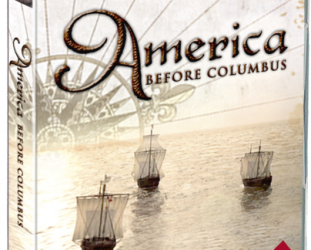
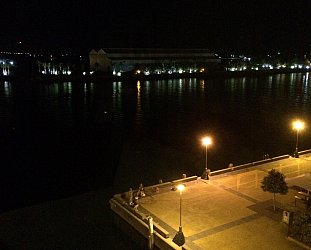

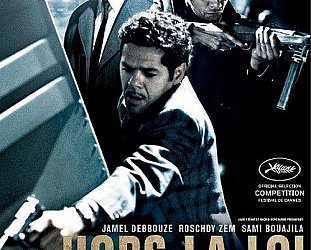
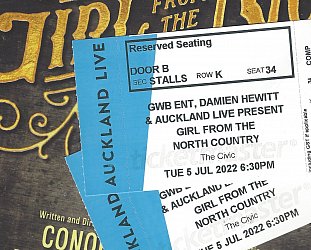
post a comment